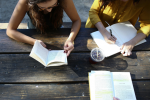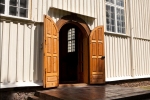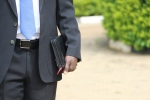March 15, 2012
Weaving Straw into CDs*
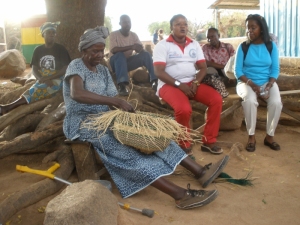
Monica, a widow and amputee, in Bolgatanga, Ghana supports herself by making and selling baskets. Because of her disability, she is unable to gather the straw needed to weave each basket and buys it from other women who collect it from nearby fields.
It takes Monica four days to make each basket, which she then sells for 10 Ghanaian Cedis – approximately $8 US dollars. At the airport in Accra, I saw a similar basket for sale for $90 cedis.
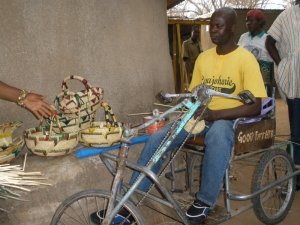
Monica, Paul, and other adults with disabilities develop skills needed to support themselves through training offered by ADDRO. This training includes mastering income-generating skills such as basket weaving, farming and food production, carpentry, or tailoring. Once the training is complete, participants are eligible for seed money to help launch micro-enterprises along with instruction in business basics. The goal? To help lift people out of poverty by equipping them with the skills and training necessary to move out of subsistence and instead, claim a place in the broader marketplace through the sale of goods or services that will bring more resources into the household.

Life in Northern Ghana is hard. The countryside is dry and dusty in February, with small villages connected by dirt roads and paths beaten down by generations of feet crossing fields to reach the nearest well or the closest road. Women and children gather at ‘bore holes:’ children work the pumps to fill water containers while their mothers wash the families’ clothing in metal basins. As we drive along the road, we pass beautifully dressed women balancing heavy loads on their heads, often surrounded by small children. Men and boys coerce skinny mules to pull carts loaded with firewood or grain, while goats, cows, pigs, and chickens roam freely.

Witnessing these connections and transformations, I saw richness: the richness of community. What am I bringing home from Ghana? A sense of transformation and connection that I hope to weave into richer relationships in my own community.
* The Ghana Cedi or GH¢ is the unit of currency of Ghana
